Animals
-
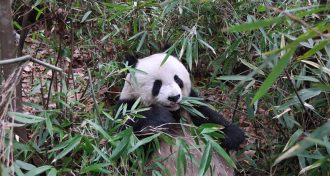 Animals
AnimalsPandas’ share of protein calories from bamboo rivals wolves’ from meat
The panda gut digests protein in bamboo so well that the animal’s nutritional profile for calories resembles a wolf’s.
By Susan Milius -
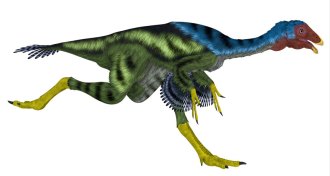 Paleontology
PaleontologyA dinosaur’s running gait may reveal insights into the history of bird flight
In what may have been a precursor to avian flight, a flightless winged dinosaur may have flapped its wings as it jogged.
-
 Agriculture
AgricultureCan Silicon Valley entrepreneurs make crickets the next chicken?
Entrepreneurs are bringing automation and data analysis to insect agriculture to build a profitable business that helps feed the planet.
By Susan Milius -
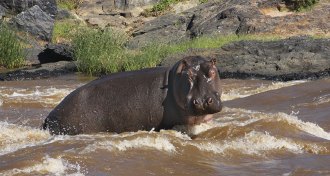 Animals
AnimalsHippo poop cycles silicon through the East African environment
By chowing down on grass and then excreting into rivers and lakes, hippos play a big role in transporting a nutrient crucial to the food web.
-
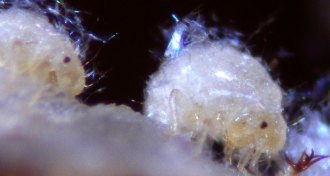 Animals
AnimalsHow aphids sacrifice themselves to fix their homes with fatty goo
Young aphids swollen with fatty substances save their colony by self-sacrifice, using that goo to patch breaches in the wall of their tree home.
By Susan Milius -
 Animals
AnimalsEndangered green sea turtles may be making a comeback in the U.S. Pacific
The numbers of green sea turtles spotted around Hawaii, American Samoa and the Mariana Islands have increased in the last decade.
By Maanvi Singh -
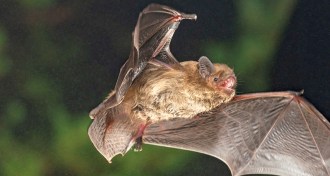 Animals
AnimalsA scientist used chalk in a box to show that bats use sunsets to migrate
A new device for investigating bat migration suggests that the flying mammals orient themselves by the setting sun.
By Yao-Hua Law -
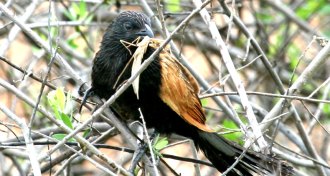 Animals
AnimalsParenting chores cut into how much these bird dads fool around
Frantic parenting demands after eggs hatch curtail male black coucals’ philandering excursions the most, a study finds.
By Susan Milius -
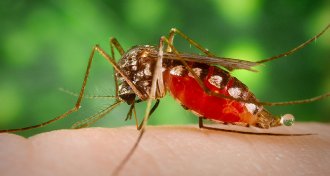 Health & Medicine
Health & MedicineTesting mosquito pee could help track the spread of diseases
A new way to monitor the viruses that wild mosquitoes are spreading passes its first outdoor test.
By Susan Milius -
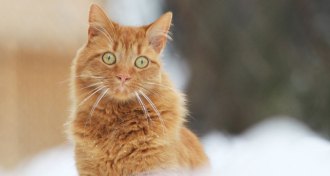 Animals
AnimalsCats recognize their own names
A new study suggests that cats can tell their names apart from other spoken words.
-
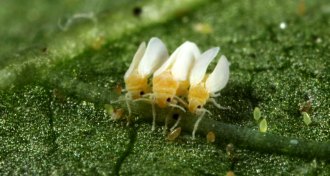 Plants
PlantsA major crop pest can make tomato plants lie to their neighbors
Insects called silverleaf whiteflies exploit tomatoes’ ability to detect damage caused to nearby plants.
By Susan Milius -
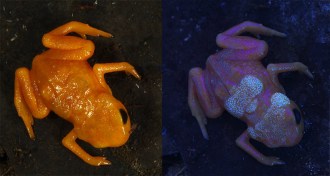 Animals
AnimalsTiny pumpkin toadlets have glowing bony plates on their backs
Pumpkin toadlets are the first frogs found to have fluorescent bony plates that are visible through their skin under ultraviolet light.
By Jeremy Rehm